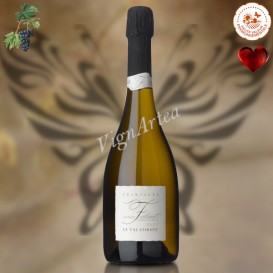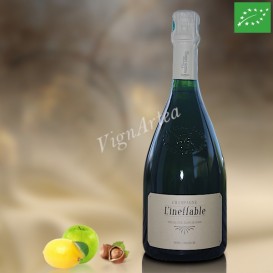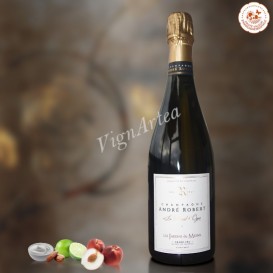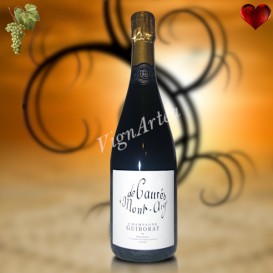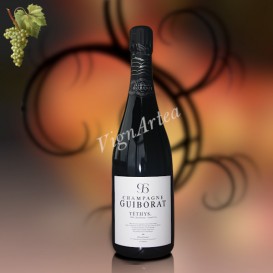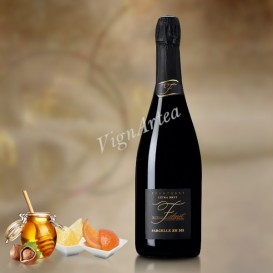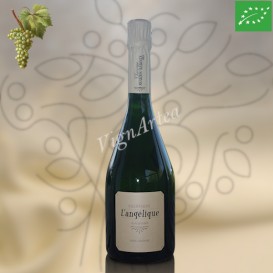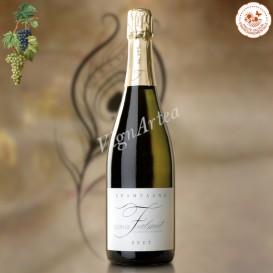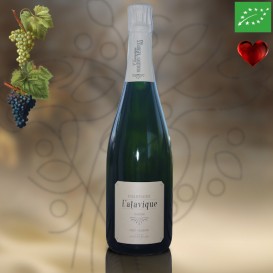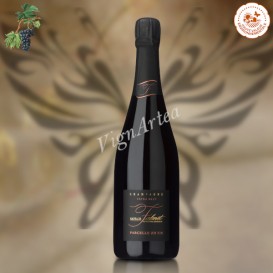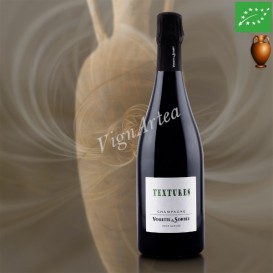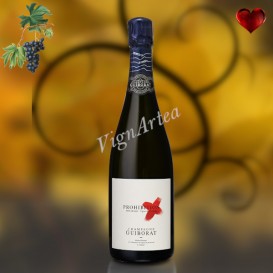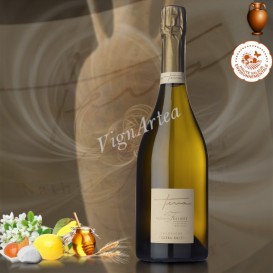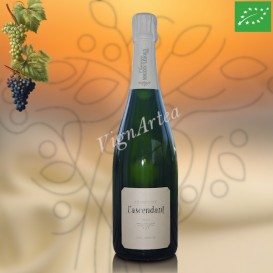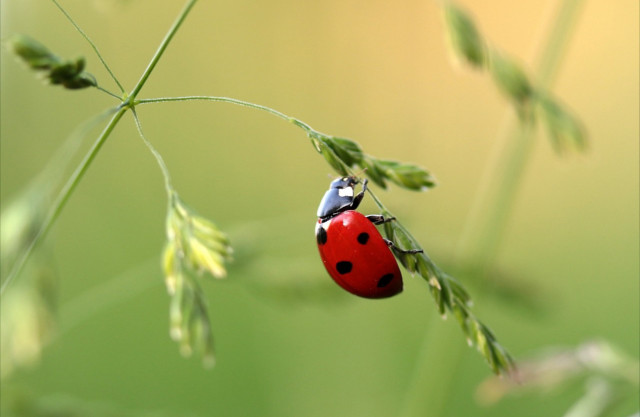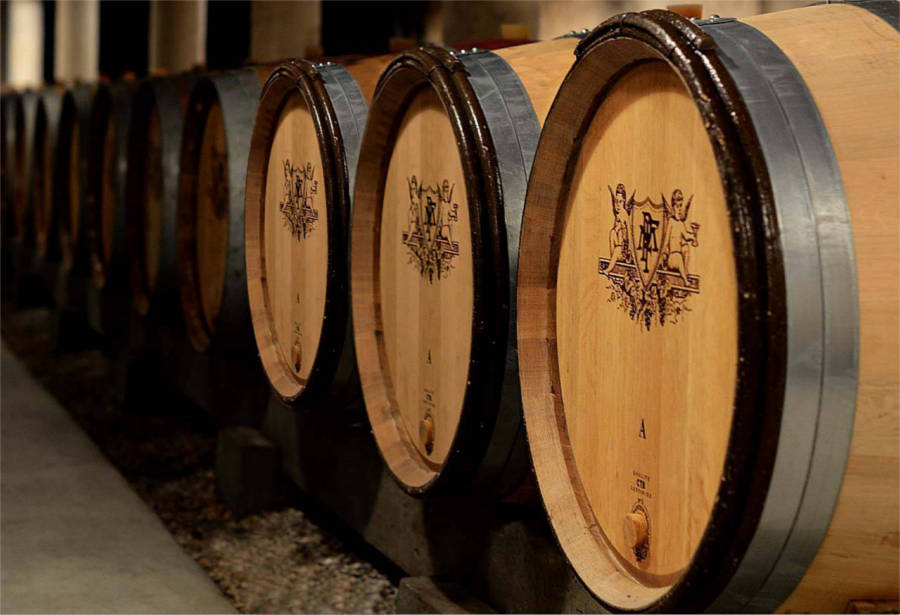DOMITILLA 2020 (Domaine Ad Fines)
RHÔNE - IGP VAUCLUSE - RED WINE
Grape varieties: Serine (92%) - Cabernet Sauvignon (8%)
Native yeasts
Ageing for 12 months in new demi-muid and Burgundy oak barrels
Full-bodied - Elegant
- Nose: elegant. Notes of blackcurrant, blackberry and cold tobacco.
- Palate: full and shaped by fine tannins. Slightly woody finish.
- Tasting date: November 2024.
- OUR OPINION: still a young vintage, but very promising and already pleasant to drink. A short decanting will allow it to open up.
DESCRIPTION
DOMITILLA is made of a majority of Serine (ancestral variety of Syrah) and a few Cabernet Sauvignon that the low percentage in the blend does not prevent from expressing itself with intensity.
The Serine vines were obtained by massal selection from a root-stock of the Bonnivières area belonging to the Yves Cuilleron estate.
TERROIR
The vines are planted on gentle, well-exposed slopes on the northern slopes of the Luberon, in the heart of Provence, where the soil is made up of greenish sandstone mollasses dating from the Burdigalian period, a geological stage dating from the Lower Miocene (23 to 15 million years ago) during which the sea invaded the Rhone Valley where it deposited numerous sediments.
These mollasses are a group of sedimentary rocks that are essentially detrital, i.e. they come from the sedimentation in a shallow marine environment of elements torn from the surrounding rocks by erosion. They are generally friable, soft and permeable, and represent a valuable source of water for the vines.
The day-night temperature differences that occur from August onwards allow a slow and progressive ripening of the grapes that generally reach maturity towards the end of September-beginning of October.
WINEGROWING & WINEMAKING
The vines have always been cultivated without the use of synthetic chemicals. Their yield does not exceed 30 hl/ha, allowing the production of ripe and concentrated grapes, rich in aromas.
The estate has the Organic certification since 2021.
The grapes are harvested by hand and vatted within an hour. Each plot and each variety is vinified separately.
The Serine grapes are destemmed at 70%, the Cabernet Sauvignon is totally destemmed.
After a cold pre-fermentation phase, the alcoholic fermentation starts spontaneously under the action of indigenous yeasts.
The skin maceration lasts 17 and 28 days for the Serine and 19 days for the Cabernet Sauvignon.
During this period, some pumping over and gentle punching down operations are carried out in order to break the marc cap and mix the skins with the juice.
Once the fermentations are complete, the musts of the Serine and the Cabernet Sauvignon are transferred for a part in a new half-muid and for the other part in Burgundian barrels of two wines. The maturation lasts 12 months.
They are then racked and blended in vats where they remain for an extra 9 month-ageing before bottling.
| Country | Rhône Valley |
| Color | Red |
| Orange wines | No |
| Clay amphorae wines | No |
| Type | Dry |
| Vintage | 2020 |
| Capacity | 75 cl |
| Variety | Serine (92%) - Cabernet Sauvignon (8%) |
| Main Grape Variety(ies) | Serine |
| Alcohol rate | 15 % |
| Quality Designation | Vaucluse (IGP) |
| Cellar Potential | More than 10 years |
| Service advise | 18°C. Decant 1/2hr before serving |
| Culture Methods | Sustainable cultivation method |
| Comments | Cold pre-fermentation, fermentation with indigenous yeasts ♦ Ageing in new demi-muid & Burgundy barrels (barrels of 2 wines) for 12 months, followed by a rest of 9 months in vats after the blend. |





